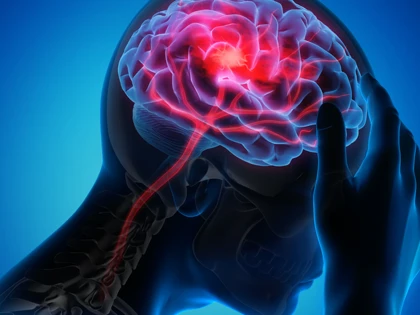How long should I ignore a toothache?
How long is enough to ignore tooth pain?Ignoring tooth pain can put your teeth and your overall health at risk. Dental discomfort is often a sign of an underlying dental problem that requires treatment by a dentist to relieve pain and prevent further problems. Even though many people are used to pushing through the pain, toothache shouldn't be ignored. Here are three reasons why you should see a dentist right away:
1. Until the discomfort subsides

2. Until things get bad
 Certain toothaches, especially the throbbing kind, do not go away. If left untreated, the discomfort and sensitivity can worsen and develop into more serious oral problems, like cavities or infections. If these issues are not addressed, the symptoms will only get worse and you may need more costly, time-consuming and painful treatments.
Additionally, toothaches can be an early sign of periodontal disease, which if left untreated can lead to serious gum problems and tooth loss. Periodontal disease typically affects the pulp inside the tooth, causing discomfort and sensitivity that extends below the dentin and hard enamel. This means bacteria in the mouth are exposed to internal nerves and blood vessels, which can cause dangerous problems.
A painful toothache can cause an infection that can spread quickly and cause fever, swelling, disorientation, and an increased heart rate. This can lead to life-threatening conditions such as sepsis and septic shock. If the infection progresses to the jawbone or brain, there is a high probability of infection.
Certain toothaches, especially the throbbing kind, do not go away. If left untreated, the discomfort and sensitivity can worsen and develop into more serious oral problems, like cavities or infections. If these issues are not addressed, the symptoms will only get worse and you may need more costly, time-consuming and painful treatments.
Additionally, toothaches can be an early sign of periodontal disease, which if left untreated can lead to serious gum problems and tooth loss. Periodontal disease typically affects the pulp inside the tooth, causing discomfort and sensitivity that extends below the dentin and hard enamel. This means bacteria in the mouth are exposed to internal nerves and blood vessels, which can cause dangerous problems.
A painful toothache can cause an infection that can spread quickly and cause fever, swelling, disorientation, and an increased heart rate. This can lead to life-threatening conditions such as sepsis and septic shock. If the infection progresses to the jawbone or brain, there is a high probability of infection.
3. Until a dental emergency occurs
 Whether it's caused by infected gums or a chipped or broken tooth, it's never a good idea to ignore the symptoms of toothache. If you ignore toothache, the condition of your teeth and gums will get worse and worse. A toothache is a warning that something is wrong.
Even worse, leaving dental discomfort untreated can lead to more serious health problems. For example, untreated tooth decay can cause bacterial infections that can travel through your bloodstream and affect your heart and brain. If the problem worsens, you're more likely to develop a painful dental abscess.
Tooth pain or sensitivity are often signs of a problem, but they don't always require immediate medical attention. In fact, in most cases, cold compresses and warm saltwater rinses can help relieve the symptoms until you can make an appointment. However, in some cases, a toothache can qualify as an emergency and require immediate medical attention.
Whether it's caused by infected gums or a chipped or broken tooth, it's never a good idea to ignore the symptoms of toothache. If you ignore toothache, the condition of your teeth and gums will get worse and worse. A toothache is a warning that something is wrong.
Even worse, leaving dental discomfort untreated can lead to more serious health problems. For example, untreated tooth decay can cause bacterial infections that can travel through your bloodstream and affect your heart and brain. If the problem worsens, you're more likely to develop a painful dental abscess.
Tooth pain or sensitivity are often signs of a problem, but they don't always require immediate medical attention. In fact, in most cases, cold compresses and warm saltwater rinses can help relieve the symptoms until you can make an appointment. However, in some cases, a toothache can qualify as an emergency and require immediate medical attention.
4. Until the scheduled dental appointment
 Dental discomfort is often your body's warning system that something is wrong and needs to be fixed. It could indicate a cracked or broken tooth, gum disease, or tooth decay. Ignoring these issues can make the condition worse, leading to expensive treatment and excruciating suffering.
While it's normal to feel like you have to "strive" at many things in life, putting up with dental discomfort is not a good idea. Instead, make your oral health a priority and schedule an appointment with Pinnacle Family Dentistry as soon as you experience any discomfort.
Over-the-counter pain relievers can help reduce symptoms until you can see a dentist. You can also rinse your jaw with salt water or apply cold compresses to reduce pain. It's important to remember that the longer you wait to seek treatment, the greater the chance of losing a tooth. This is why regular dental checkups are so important to catch problems early.
Dental discomfort is often your body's warning system that something is wrong and needs to be fixed. It could indicate a cracked or broken tooth, gum disease, or tooth decay. Ignoring these issues can make the condition worse, leading to expensive treatment and excruciating suffering.
While it's normal to feel like you have to "strive" at many things in life, putting up with dental discomfort is not a good idea. Instead, make your oral health a priority and schedule an appointment with Pinnacle Family Dentistry as soon as you experience any discomfort.
Over-the-counter pain relievers can help reduce symptoms until you can see a dentist. You can also rinse your jaw with salt water or apply cold compresses to reduce pain. It's important to remember that the longer you wait to seek treatment, the greater the chance of losing a tooth. This is why regular dental checkups are so important to catch problems early.













